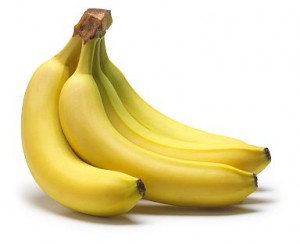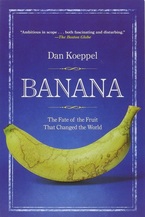home

SHOULD WE EAT BANANA PEELS?
Bananas Are Good for Us
Each year more than 145 million tonnes of bananas are consumed around the world. Bananas have been recognized as a very healthy food for some time. They’re filled with potassium, low in salt, and they increase digestion which makes them a great choice for anyone at risk of high blood pressure or stroke.
Bananas also contain plenty of iron, and so protect against muscle cramps during workouts, and reduce swelling. Because they contain high levels of tryptophan (which is converted into serotonin), bananas may also help with depression.
What About the Peels?
But with the exception of some small farms in areas where bananas are grown which use the peels as feedstock, banana peels are never used. Even monkeys throw the peel away, and this creates an enormous amount of organic waste.
Now many are beginning to regard the banana peel as the latest “superfood” as it contains high amounts vitamin B6 and B12, magnesium and potassium, as well as some fibre and protein. Scientists believe antioxidants found in the peel may help with weight loss by speeding up the metabolism while also boosting both your immune system and your mood.
Vitamin B6 helps the immune system, improves brain and heart health, and normalizes blood sugar levels. B12 supports our brain and nervous system while antioxidants found in the banana skin can help speed up your metabolism.
But banana skins don't taste AND are not considered suitable for vegetarians. Most are sprayed with a coating intended to extend the banana's shelf-life. The coating is believed to contain chitosan – a bacteria-fighting compound derived from shellfish.
So be sure to get informed before eating banana peels and be sure to wash the peels very well if you choose to consume them.
Further information:
Should you be eating banana peels? The science is slippery
Eating banana peels can be nutritious but may not be good for you, experts reveal
Five Ways to Cook with Banana Peels
Bananas Are Good for Us
Each year more than 145 million tonnes of bananas are consumed around the world. Bananas have been recognized as a very healthy food for some time. They’re filled with potassium, low in salt, and they increase digestion which makes them a great choice for anyone at risk of high blood pressure or stroke.
Bananas also contain plenty of iron, and so protect against muscle cramps during workouts, and reduce swelling. Because they contain high levels of tryptophan (which is converted into serotonin), bananas may also help with depression.
What About the Peels?
But with the exception of some small farms in areas where bananas are grown which use the peels as feedstock, banana peels are never used. Even monkeys throw the peel away, and this creates an enormous amount of organic waste.
Now many are beginning to regard the banana peel as the latest “superfood” as it contains high amounts vitamin B6 and B12, magnesium and potassium, as well as some fibre and protein. Scientists believe antioxidants found in the peel may help with weight loss by speeding up the metabolism while also boosting both your immune system and your mood.
Vitamin B6 helps the immune system, improves brain and heart health, and normalizes blood sugar levels. B12 supports our brain and nervous system while antioxidants found in the banana skin can help speed up your metabolism.
But banana skins don't taste AND are not considered suitable for vegetarians. Most are sprayed with a coating intended to extend the banana's shelf-life. The coating is believed to contain chitosan – a bacteria-fighting compound derived from shellfish.
So be sure to get informed before eating banana peels and be sure to wash the peels very well if you choose to consume them.
Further information:
Should you be eating banana peels? The science is slippery
Eating banana peels can be nutritious but may not be good for you, experts reveal
Five Ways to Cook with Banana Peels
Check out this book:
|

|
|
|
© MusicFoodSex.com All rights reserved
|
